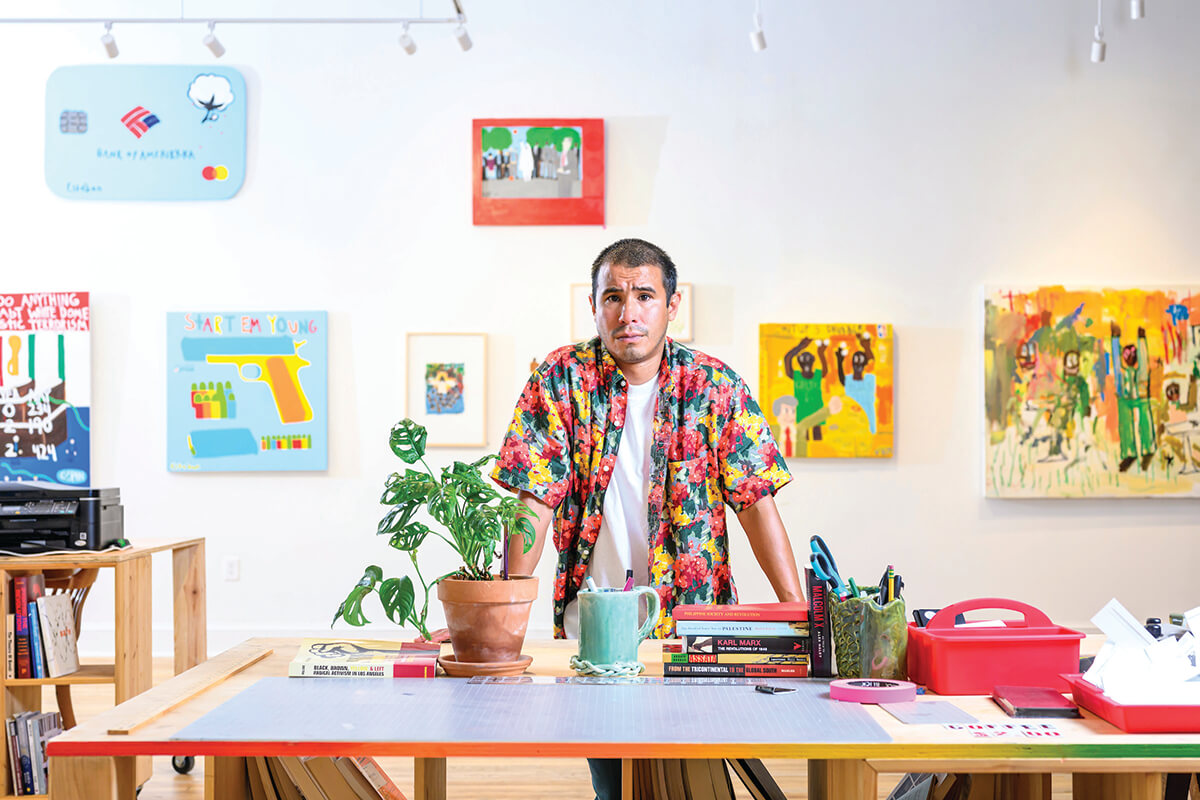Arts & Culture
Downtown Gallery NoMüNoMü is Creating a Community for Marginalized Artists
The goal of the Bromo Arts District workspace is to challenge the status quo with exhibitions and events that address gentrification, race, and politics.

On a gray afternoon in November, NoMüNoMü is largely empty, aside from Joseph Orzal, who contemplates the multi-colored artworks that hang on the walls. But on any given weekend, the downtown gallery on Howard Street is packed with young creatives, all curious about the exhibitions and events hosted by this “intersectional arts collaborative.”
“[The typical museum] is not for people, it’s for the donors,” says Orzal, creative director at NoMüNoMü and former staffer at the Corcoran Gallery in Washington, D.C., where he grew up.
As a first-generation son of immigrants, he found local art museums to be exclusive in their formality and unwelcoming to people of color with their Eurocentric collections. Which is why, in 2014, Orzal co-founded NoMüNoMü, an art gallery and workspace for marginalized artists who have largely been left out of mainstream art museums.
Originally housed in the D.C. home of his friend, Nora Müeller, who inspired the space’s name, NoMüNoMü’s goal is to challenge the status quo with exhibitions and events that address gentrification, race, and politics.
“The books are radical, the art is radical, but it’s cozy and comfortable—we’re not trying to scare people away,” says Orzal, surrounded by wooden shelves featuring books like The Colonizer and the Colonized by Albert Memmi, next to a children’s corner, complete with thrifted couches, a shag rug, and Afghan blankets.
During the pandemic, Orzal, a Maryland Institute College of Art grad, set his eyes on Baltimore, inspired by its working-class roots and DIY ethos. In 2021, he moved NoMüNoMü to the city’s Bromo Arts District. Today, the gallery space mingles with artist workstations and plenty of space for community events, such as lectures, classes, and film screenings. But anything goes.
“There’s not a lot of gatekeeping here,” says Orzal. “There aren’t any ideas that are really off the table.”
Over the next year, he aims to raise at least $250,000 to support NoMüNoMü’s operational costs, fund additional programming, and hire a staff, after having to let his small team go a year ago due to gaps in funding—a perennial concern for small arts organizations. And as the gallery evolves, he hopes it will not only be a space to support artists and artworks that challenge oppression, but also provide them with a sense of freedom.
“As people start to be informed by this space, and as people start to feel like this is a space for them, to be comfortable as themselves…they’ll start to think differently,” says Orzal. “They’ll produce different forms of art, create new narratives, and create new dialogues…I hope we can be a catalyst for genuine creativity.”